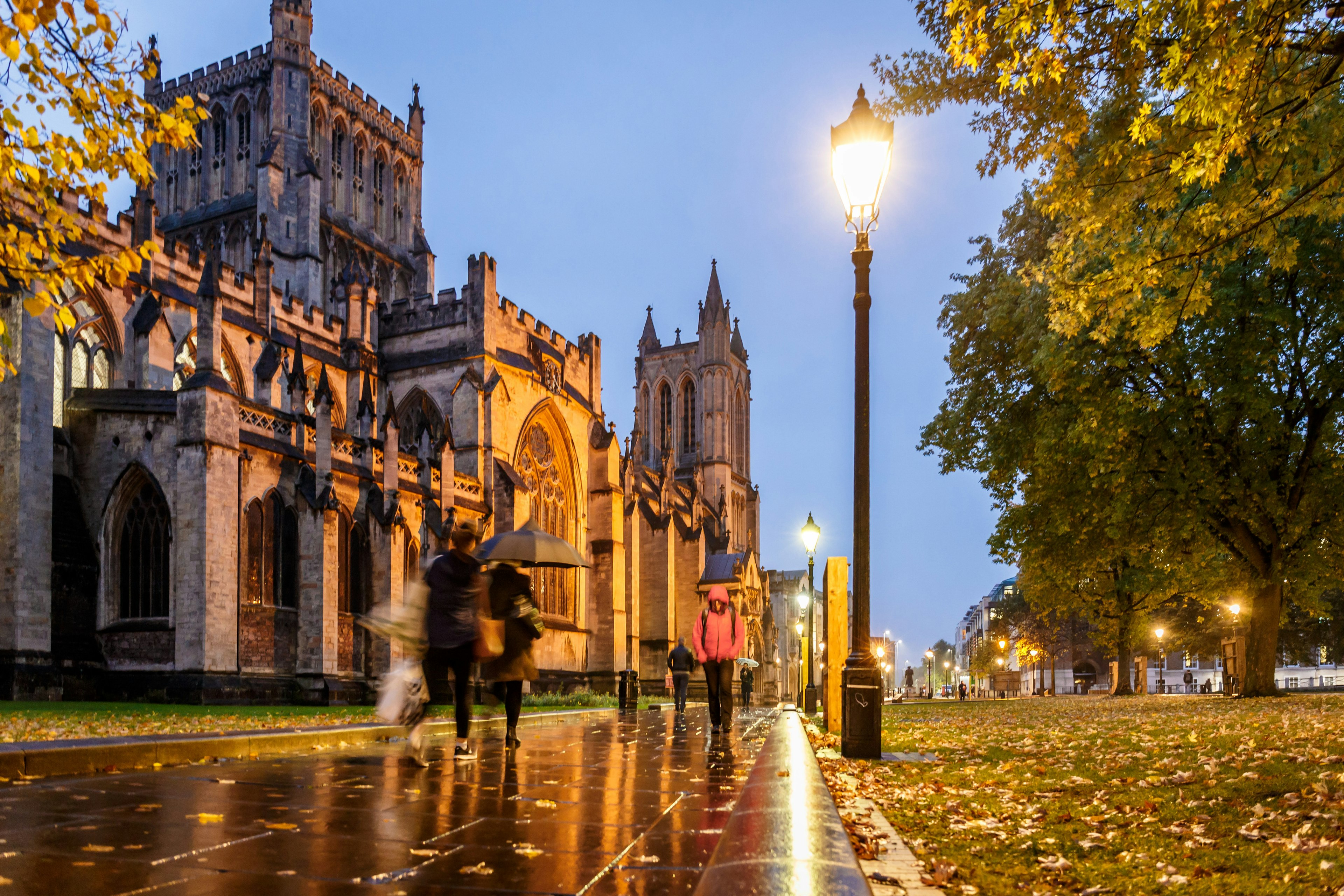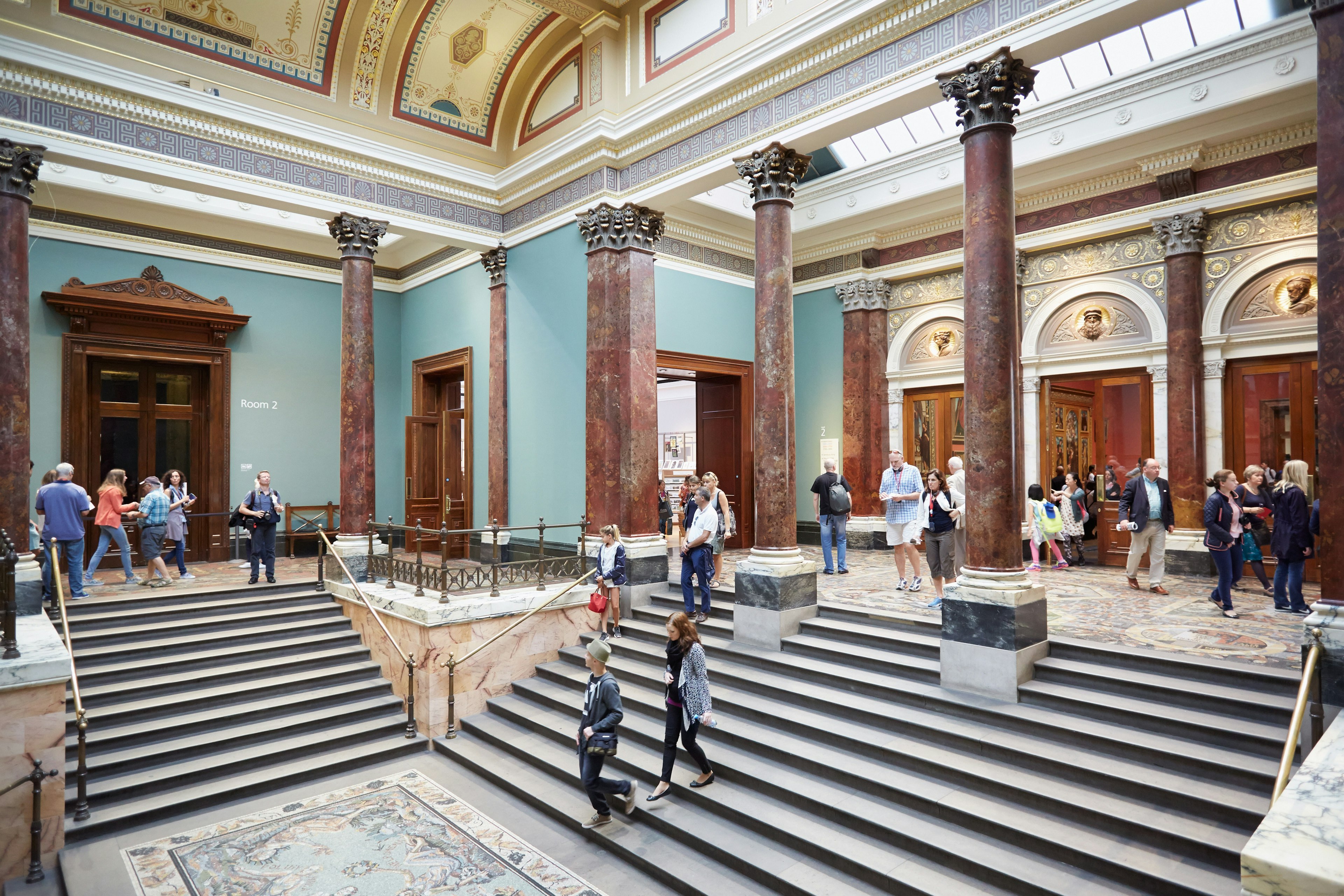
Oct 14, 2024 • 5 min read

These top tips will help you be prepared for anything on your trip to England © SolStock / Getty Images
Such is England’s reach on popular culture, you may think you already know the country before you visit.
Though if you’re expecting to be surrounded by a bunch of well-heeled James Bonds or a gaggle of eccentric Monty Python characters, then think again.
While the everyday English aren’t quite the same as how they’re portrayed in film, television and books, this is a country with a number of peculiarities that are good to know before visiting, especially when venturing outside of London. From practicalities like train prices to etiquette tips on how the English approach queueing, it’s always important to be ahead of the game when visiting this wonderful and varied country.
Here are a few key things to know before traveling to England.

Preparing for all types of weather is an essential part of the English experience. England’s maritime location in the wild North Atlantic means that even in summer, biting winds and untimely rain showers can unexpectedly scupper a balmy afternoon.
That doesn’t mean you need to take an umbrella everywhere, but you do need to put a jacket in your suitcase and always check the conditions on your favorite weather app before venturing out. As a rule, London is usually a couple of degrees warmer than other parts of the country.
Talking about the weather is in the English blood and a part of the national psyche. And the more lamentable the forecast, the more likely people are to talk about it. Come rain or shine, prepare to offer an opinion on the day’s weather, and express that it’ll hopefully brighten up/cool down as the week goes on.
Unlike some other countries in western Europe, England’s train system was privatized many years ago, and this, along with other factors, has lead to some of Europe’s highest train prices.
Try to book ahead of time (around 12 weeks before travel for the best rates) and look out for cheap advance fares. While not as quick as train travel (and certainly not as romantic), coaches such as National Express and Megabus offer far cheaper prices when traveling across the country and are highly recommended for those on a budget.
London’s big, bold, and full of iconic English landmarks and experiences. But it isn’t everything. If you have the time to explore beyond the capital, you’ll discover a variety of landscapes, people and cultures, and some wonderful things to do.
From the wild coastlines of Cornwall to the soaring hills of the Lake District, there’s much to see in this ancient land.
Yes, England is in Europe, but it doesn’t always play by European rules (in more ways than one, with Brexit still something that people can't agree on seven years after the vote). If you’re backpacking around Europe, remember that the UK and Ireland use type G plug sockets (three rectangular pins in a triangular pattern), so make sure you have the right power adapter when arriving in England as it differs from the rest of the continent.

England is home to many of the world’s greatest museums, and you won’t need to pay a penny to enter some of them. Especially great for rainy days in London, you can peruse dinosaurs at the Natural History Museum or masterpieces by Turner at the National Gallery and spend the money saved at the pub later on.
Alongside some truly bizarre place names, England also has several towns and counties that aren’t pronounced the way they are spelled. Names with a -ter suffix are particularly notorious for this.
Bicester is pronounced biss-ter rather than bi-ces-ter, Gloucester is pronounced gloss-ter rather than glou-ces-ter, Leominster is pronounced lem-ster rather than Leo-minster. You get the picture.
The English need no excuse to go to the pub on a sunny summer afternoon, and sitting indoors is almost unthinkable. Find a table in the beer garden at the local boozer and order in a few cold pints. Job done.

Traveling just a few short miles in England can often mean a change in accent, so train your ears to prepare for this. Regional accents are hugely diverse, and while they’re still English, they can sometimes be difficult for even fellow England residents to understand.
The accent you’ll hear in Birmingham ("Brummie") differs wildly to what you’ll hear when you arrive in Newcastle ("Geordie"). London is a separate case as it’s so cosmopolitan that you can expect to hear a variety of different accents and languages throughout the day.
Sometimes polite to a fault, the English are very orderly when queueing, and those who jump a line can expect stern looks and grumbling at the very least. So get in line and patiently wait your turn to avoid any awkward situations.
Even in situations where the fault lies with you, you might receive an apology. Only Canadians say sorry more than the English, so get used to hearing it and, eventually, saying it.
Stereotypes about the English are often amusing and sometimes painfully true, though the one about the poor standard of English food can be comfortably consigned to history’s trashcan.
Towns and cities across the country are now dotted with superb restaurants offering a strong emphasis on fresh and locally grown produce. Alongside traditional dishes, you’ll find cuisine here from all over the world amid an ever-growing list of Michelin-starred restaurants.
The pub is a rite of passage here, and the English love a pint of beer. But England has grown out of its cruel 1970s caricature of warm stale beer, and these days, there are myriad styles to sample, up and down the country.
From real ales at historic Victorian pubs to craft beer at bright modern taprooms, choose from sours, stouts, saisons, New England IPAs and beyond.

From Glastonbury in June to Reading and Leeds in August and everything in between, there are lively music festivals running throughout the summer in England. No matter what week you’re here, there’s bound to be a festival on somewhere. Getting tickets for the big events is a challenge, though – you'll need to look out for those around nine months in advance.
There are also a plethora of smaller festivals that are often great value and easier to navigate too, such as Birmingham’s superb Mostly Jazz, Funk & Soul Festival.
Visitors from EU countries will be covered for some treatment on the National Health Service (NHS) if they fall ill during a visit by using their European Health Insurance Card (EHIC). Visitors from non-EU countries with a reciprocal health care arrangement with the UK may also be covered for some treatment needs, particularly emergencies.
Don’t be surprised if you get into a metric muddle. For some things, the English use metric measurements, and for other things, they use imperial. Though metric measurements became legal in the UK back in 1875, Britain has never fully transitioned to using metrication in all situations. Roads are still measured in the imperial unit of miles, for example, and height is often discussed in feet and inches.
This article was first published Jun 26, 2022 and updated Jul 13, 2023.


Oct 14, 2024 • 5 min read







